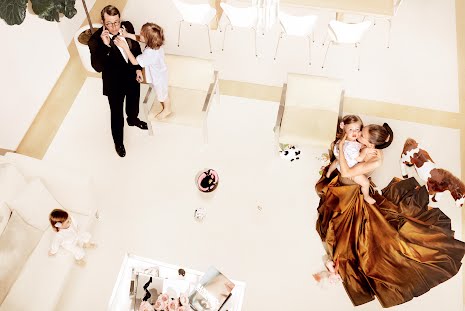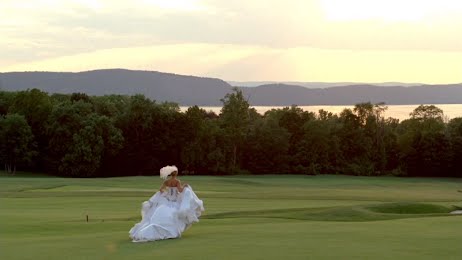On raising city kids

2. Her reasoning for deciding to raise her family in New York City, despite the fact that she has three young children:
"You do start to understand the behind-the-gate mentality, the getting in the car in your driveway... but I can't imagine living in seclusion. We flirted with it. We went outside the city and troubled all these realtors and stood in these homes and fantasized, and then I kept picturing nine o'clock at night and" -- she breaks into mime drumming her fingers on her crossed knees and staring into the middle distance.
"The beautiful thing about New York is, you have to expose yourself to other people the minute you step outside the door. There is no choice. And I love that.
Dodging bullets

I am admittedly an admirer of all things Beyoncé -- I wouldn't say I'm a fan, but I can't help but recognize the woman is a force of nature -- but I think even the most jaded observer would think her latest video is great in one way or another. Well, at least if she's a woman in her mid- to late-twenties or so.
Here's why: It has a clever narrative (can't we all relate to that awkward high school date footage) beautiful surroundings (where was this shot?) gorgeous attire (I want one of everything she wears in the first 20 seconds of the video) and really interesting camera work (does anyone know if they used a DSLR to shoot this?) I'm not really a fan of the song, but the video itself gives me some hope for the future of MTV's original medium.
Also, it should ring true to any girl who has looked back happily at the demise of past relationships and realized they definitely dodged a bullet or two.
Connecting the dots

That love and pain stuff

I'm a little behind on this, but all of this New York Times Op-Ed based on Jonathan Franzen's commencement address to Kenyon College's Class of 2011 is worth reading. I particularly wanted to share one bit about the difference between "the world of liking" things on Facebook, and loving things and people in real life.
Franzen's speech isn't
pertinent only to today's new college grads-- those supposedly super distracted kids
that grew up with Facebook, texting, sexting, and all the rest. People of all
generations are now tempted to spend more free time in the shiny,
simple world of online social networks. We're all busy, and maintaining
real life relationships can be much more hassle than keeping up with the hundreds
of electronic connections we have online.
But in the end, loving someone in the flesh is much more rewarding than "liking" things online-- or really, anything else that we can do in this life.
"The simple fact of the matter is that trying to be perfectly likable is incompatible with loving relationships. Sooner or later, for example, you’re going to find yourself in a hideous, screaming fight, and you’ll hear coming out of your mouth things that you yourself don’t like at all, things that shatter your self-image as a fair, kind, cool, attractive, in-control, funny, likable person. Something realer than likability has come out in you, and suddenly you’re having an actual life.
...When you consider the alternative — an anesthetized dream of self-sufficiency, abetted by technology — pain emerges as the natural product and natural indicator of being alive in a resistant world. To go through a life painlessly is to have not lived. Even just to say to yourself, 'Oh, I’ll get to that love and pain stuff later, maybe in my 30s' is to consign yourself to 10 years of merely taking up space on the planet and burning up its resources. Of being (and I mean this in the most damning sense of the word) a consumer."